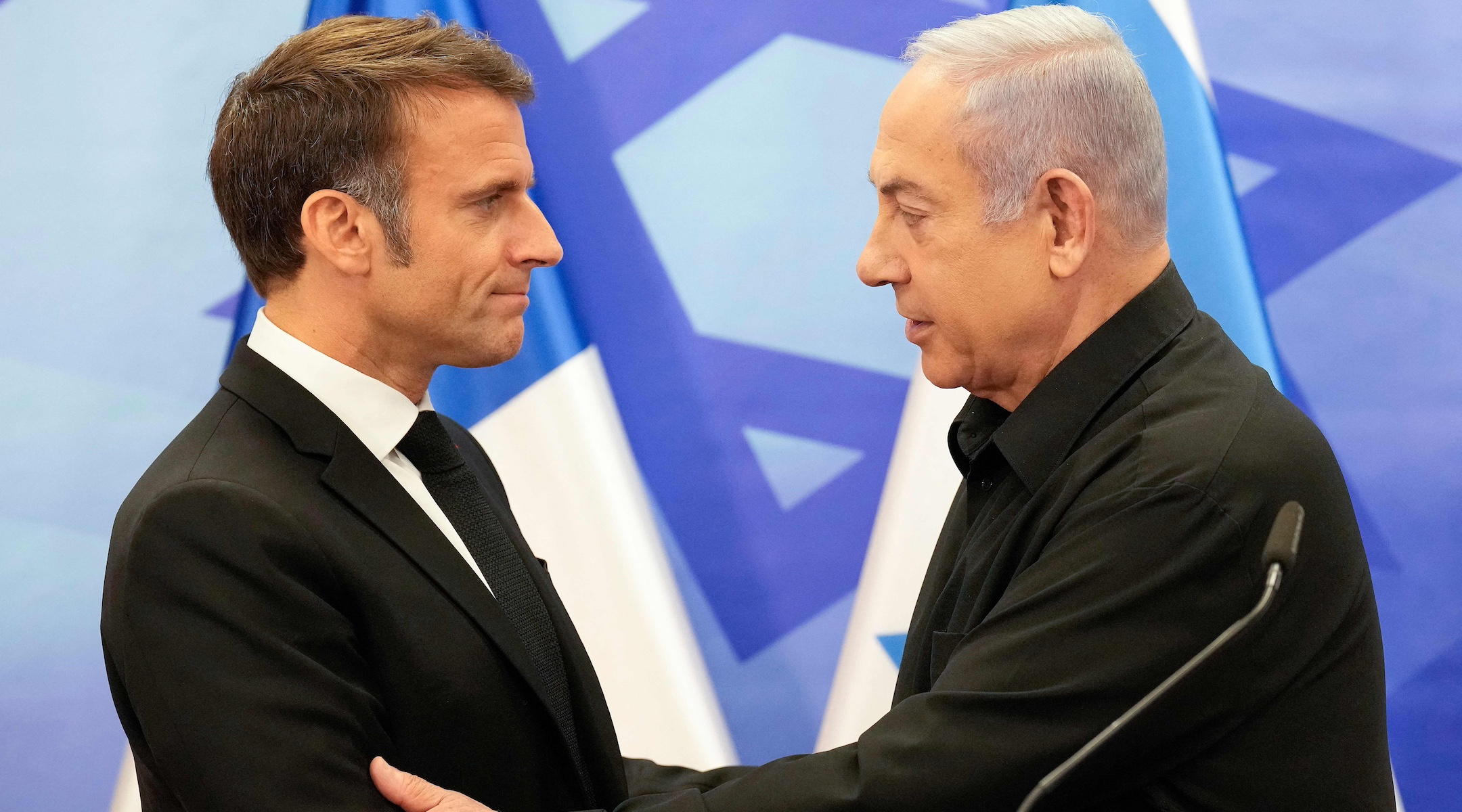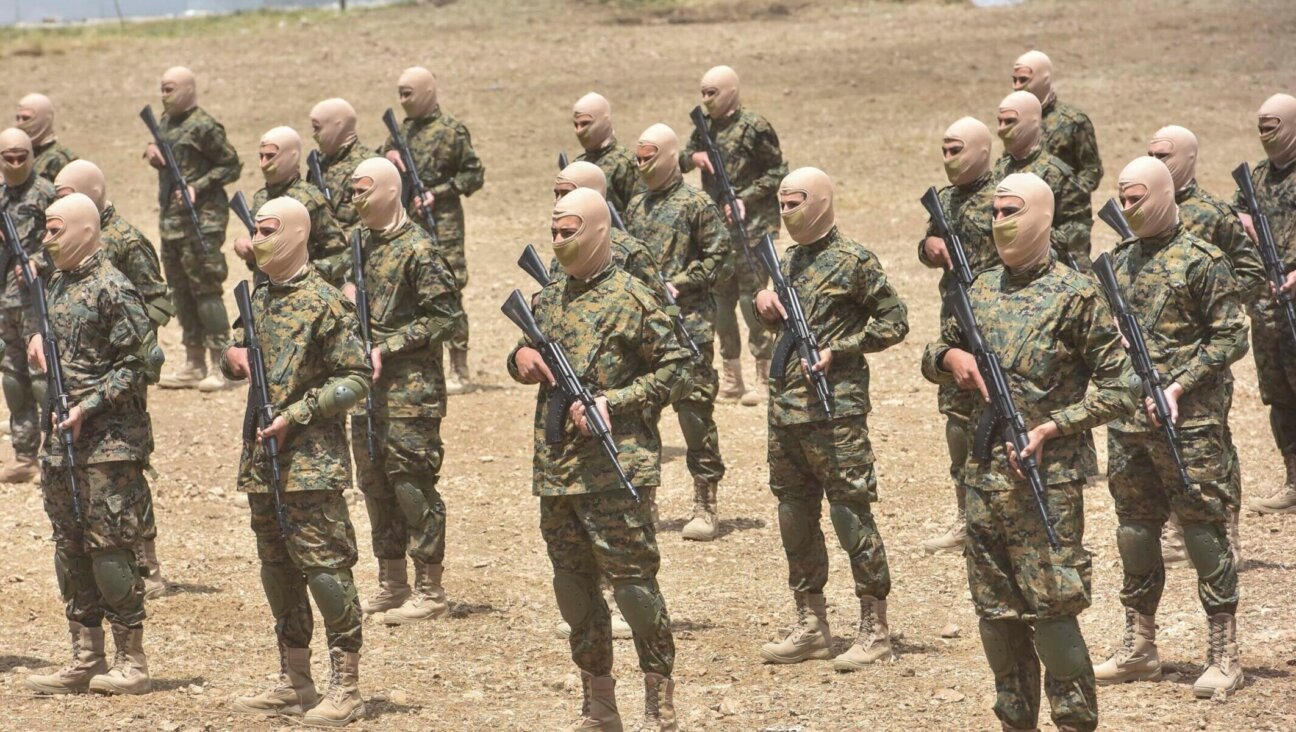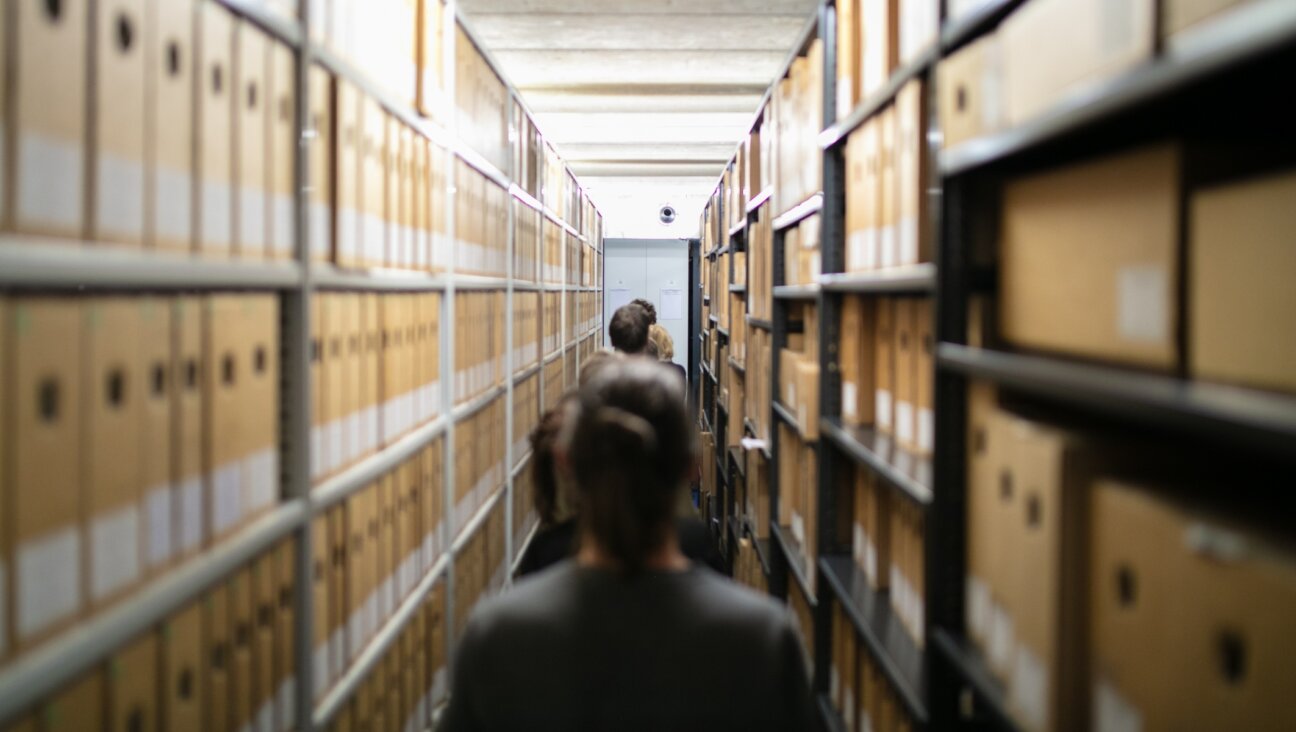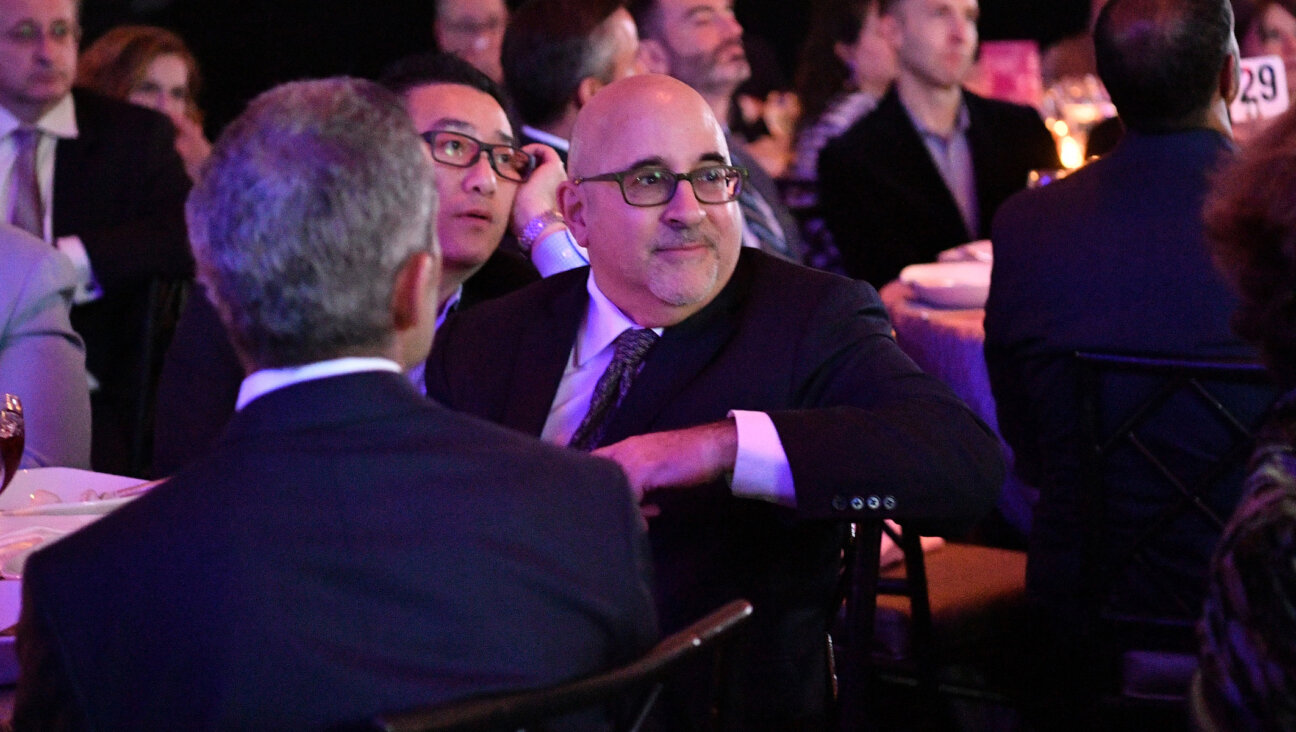With Israel visit, Macron seeks to balance solidarity with Israel and calls for peace
“Democracies respect the rules of war and ensure humanitarian access,” the French president said in Jerusalem

French President Emmanuel Macron shakes hands with Israeli Prime Minister Benjamin Netanyahu after their joint press conference in Jerusalem, Oct. 24, 2023. (Christophe Ena/Pool/AFP via Getty Images)
(JTA) — French President Emmauel Macron visited Jerusalem on Tuesday, attempting to balance his solidarity with Israel alongside his calls for humanitarian aid in Gaza and a political peace process with the Palestinians.
Thirty French citizens were killed in the Hamas incursion into Israel on Oct. 7, which left over 1,400 people in Israel dead and over 200 taken hostage. Nine French nationals are still missing and believed to be held captive. About 50 other French citizens are stuck in the besieged Gaza Strip, which has been pounded with Israeli airstrikes.
After a closed-door meeting with Israeli Prime Minister Benjamin Netanyahu, Macron said in a press conference that their countries shared the common enemy of terrorism. He added that Hamas’ onslaught dealt France its worst death toll from a terror attack since 2016, when 86 people were killed during a Bastille Day celebration in Nice.
Macron also met with about 30 family members of French and French-Israeli victims of Hamas in Tel Aviv on Tuesday.
But he additionally urged Israel to adhere to the laws of war and protect civilians in Gaza, who are living in a dire humanitarian crisis with dwindling access to water, food and electricity. According to the Gaza Health Ministry, which is controlled by Hamas, the war has killed more than 6,000 Palestinians trapped in the coastal enclave.
“The fight must be merciless, but not lawless, because we are democracies and we are fighting against terrorists,” said Macron. “Democracies respect the rules of war and ensure humanitarian access. Democracies do not target civilians, neither in Gaza nor elsewhere.”
The French president has emerged as one of the most prominent Western voices pushing Netanyahu to allow humanitarian aid in Gaza. He urged Israel to reestablish electricity for hospitals, while ensuring the electricity is not misappropriated by Hamas, which has diverted millions of aid funds in the past.
Macron also warned Israel’s neighbors to avoid escalating the war into a broader regional conflict. He suggested that the international coalition set up to fight the Islamic State in Syria and Iraq could be widened to fight Hamas.
He closed his remarks by insisting on a peaceful, political resolution to Israel’s decades-long conflict with the Palestinians.
“Regional stability and return to normalization can only take place if Israel defends its security, fights against violence but also accepts the legitimate right of Palestinians to have a state, to live in peace and in security side by side with Israel,” he said.
Macron also became one of few Western leaders who has met with Palestinian President Mahmoud Abbas in Ramallah since the start of the fighting, despite a ban by Israel that deemed “security conditions” in the West Bank insufficient. Only Dutch Prime Minister Mark Rutte has also visited Ramallah. On Wednesday, Macron went on to meet King Abdullah II of Jordan and President Abdel Fattah al-Sisi of Egypt.
Meanwhile in Paris, the World Jewish Congress convened a meeting on Tuesday to address a global surge in antisemitic hate speech online. Representatives from across the world reported that Hamas has used internet and social media platforms to fuel a spike in hate speech and disinformation since the Oct. 7 attacks, an effort that the platforms’ content moderation and monitoring strategies have failed to prevent.
According to a report published alongside the forum, Hamas has also amassed support among far-right and racist ideologies, pointing to a shift in extremist circles around the globe.
This article originally appeared on JTA.org.
A message from our Publisher & CEO Rachel Fishman Feddersen

I hope you appreciated this article. Before you go, I’d like to ask you to please support the Forward’s award-winning, nonprofit journalism so that we can be prepared for whatever news 2025 brings.
At a time when other newsrooms are closing or cutting back, the Forward has removed its paywall and invested additional resources to report on the ground from Israel and around the U.S. on the impact of the war, rising antisemitism and polarized discourse.
Readers like you make it all possible. Support our work by becoming a Forward Member and connect with our journalism and your community.
— Rachel Fishman Feddersen, Publisher and CEO



















